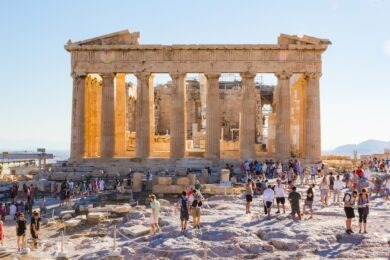Update: On Jan. 24, the U.S. State Department issued a Level 4 “do not travel” advisory for the central Chinese province of Hubei and a second case was confirmed by the Chicago Department of Public Health.
Now that a particularly severe strain of coronavirus has infected hundreds in Asia, caused nine confirmed deaths, shut down ground and air transportation from the town of Wuhan, China, and been confirmed in the United States, protecting attendees from the disease has to move to the top of planner checklists. Smart Meetings talked to the experts for best practices.
What Is 2019-nCoV?
World Health Organization (WHO) describes the new virus as having pneumonia-like symptoms, including fever, headache, cough and sore throat. It may have originated in a market in China in December and has since been reported in Thailand, Taiwan, Japan and South Korea. This week, a traveler returning from Wuhan, China to Seattle, Washington, was diagnosed as having coronavirus by the Centers for Disease Control. Five U.S. airports—Chicago O’Hare (ORD), Hartsfield-Jackson (ATL), John F. Kennedy (JFK), Los Angeles International (LAX) and San Francisco International (SFO)—have begun screenings for passengers coming from that area in China. WHO is warning that some “super-spreaders” are highly infectious and can spread the disease through coughing or sneezing.
Editor’s Note: On Jan. 23, Tim Hentschel, CEO of HotelPlanner reported that he has seen a 30 percent decrease in travel into China and a 12 percent drop in Chinese groups traveling outside of China. He expects the percentage of cancellations of outbound Chinese groups to increase as the Chinese Government takes steps to quarantine Wuhan. In total, more than 375 groups have been cancelled in the last two weeks. “Group travel tends to be hit hardest by these types of issues,” he said.
What Can Planners Do?
WHO is recommending the frequent handwashing and covering coughs and sneezes, but has not yet issued an international public health emergency.
John Ayo, author of Travel Balance: A Unique Health Guide for Your Journey, suggests that in addition to standard hygiene precautions, planners take the time to boost their own defenses and the resiliency of attendees using the same strategies he recommends for any flu season. “Needing to know the name of the virus is like needing to know the label on the beer bottle that hits you over the head,” he says. “The key is increasing your immune system.”
Following are his tips for you—and your guests:
- Eat immune-boosting herbs such as oregano and garlic (you could even talk to the chef about incorporating them into the meal)
- Limit sugars (that includes most alcoholic cocktails, although liquors such as vodka and whiskey contain little sugar)
- Make hygiene convenient (set up hand-washing and sanitation stations)
- Schedule sun and exercise time (yoga in the morning or afternoon scavenger hunts make it communal)
- Limit contagion between guests (introducing fist-bumps and happy-face masks is a fun way to keep any bacteria isolated)




